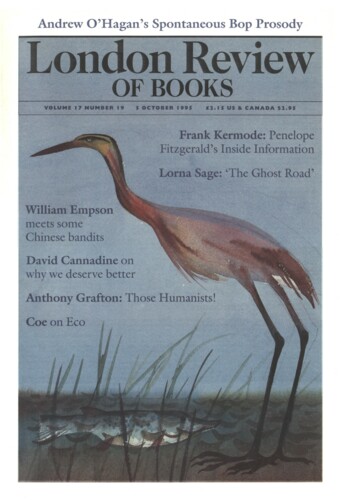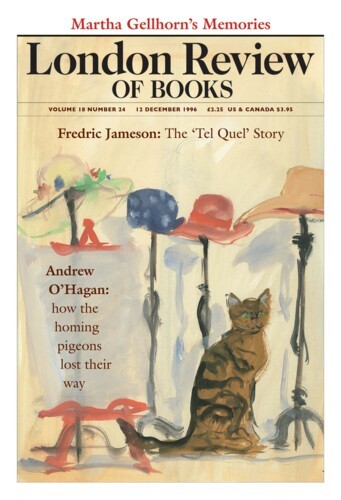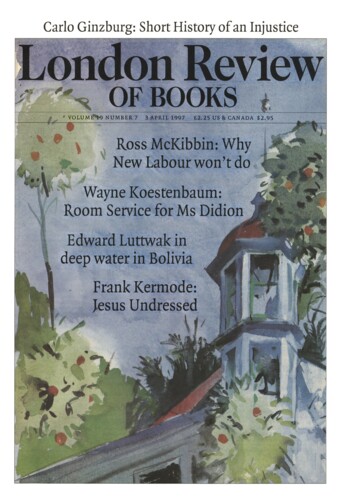Paean to Gaiety
Lorna Sage, 22 September 1994
In this camp and dashing and deliberately lightweight study of a certain strand of ‘sexual ontology’ Terry Castle pursues the lesbian-as-ghost from Defoe’s wistful nearly-real Mrs Veal onwards. She had, she explains, been planning and researching a much heavier straight book about hauntings – on ‘the waning of belief in apparitions in Western culture after the Enlightenment’ – but in the end decided to come out of the closet and produce this labour of love: ‘I felt scandalously energised.’’





